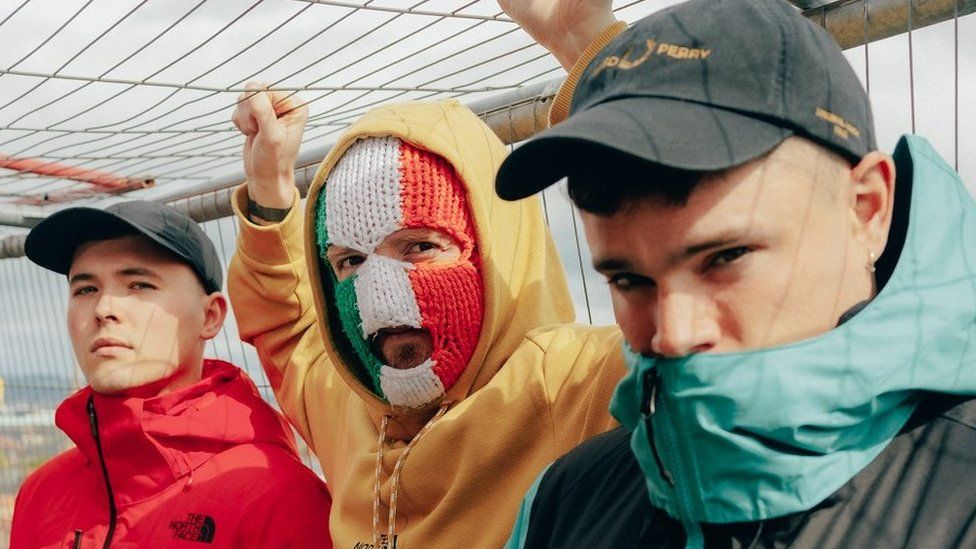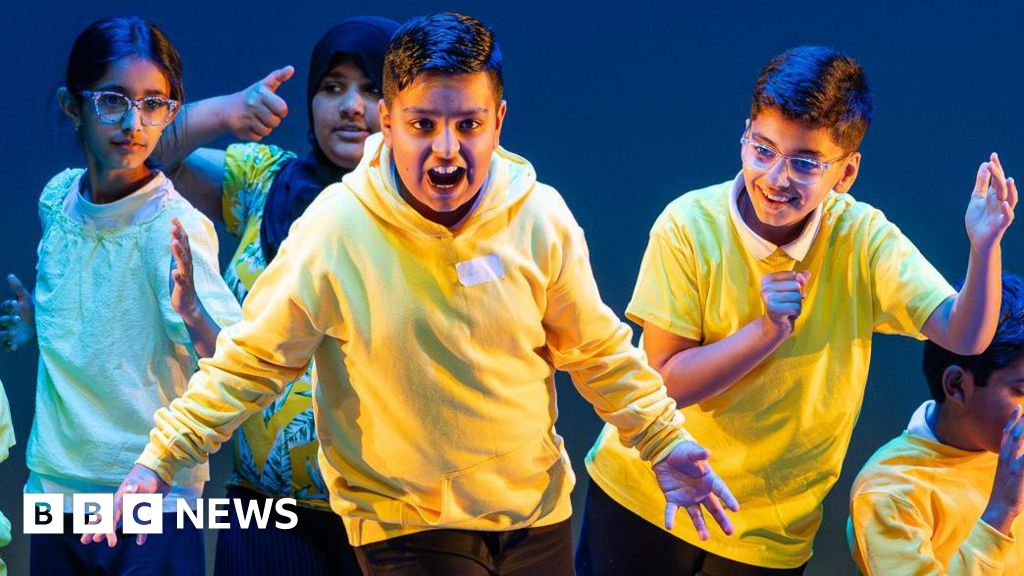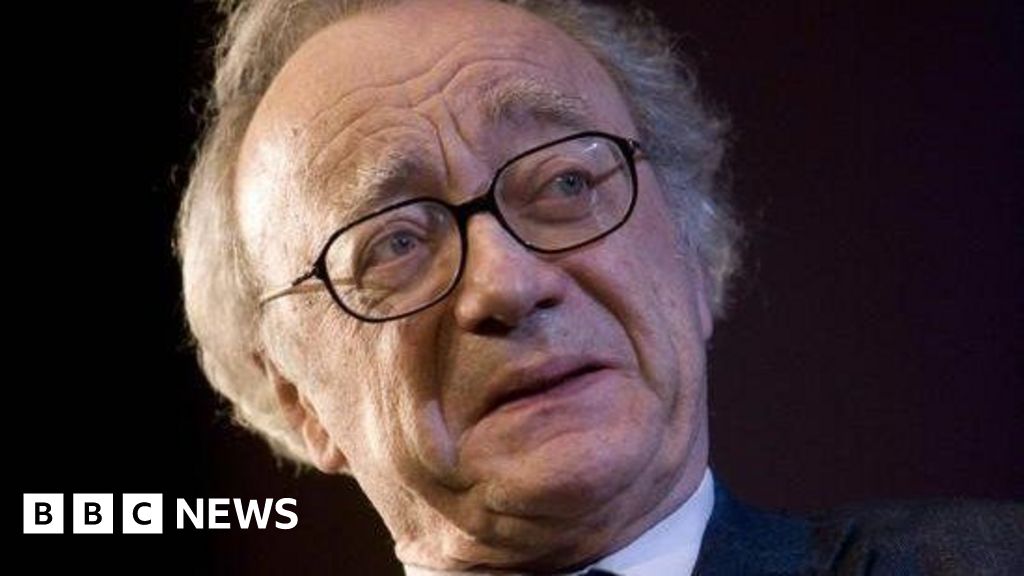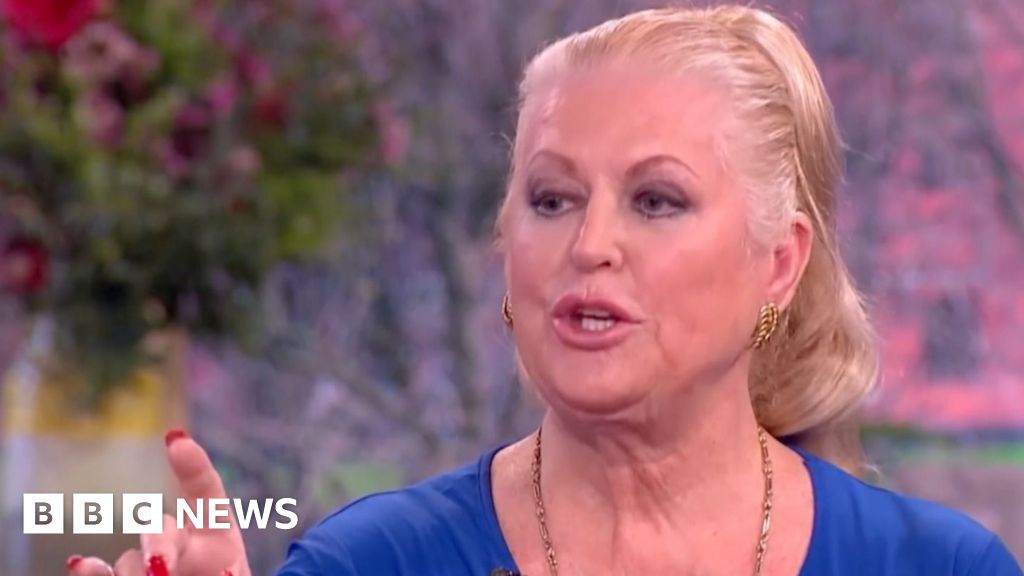ARTICLE AD BOX
 Image source, Kneecap
Image source, Kneecap
Móglaí Bap, DJ Próvaí and Mo Chara are an Irish-speaking rap trio from west Belfast
The Belfast rap group Kneecap has been blocked from getting a £15,000 grant after the UK government objected.
The band said the grant was approved by an independent selection board but was then "overruled" by the government.
They claimed they were told that their 2019 tour entitled "Farewell to the Union" had angered the Conservatives.
UK Business Secretary Kemi Badenoch's spokesperson said they did not want to hand taxpayers' money "to people that oppose the United Kingdom itself".
Kneecap's representatives had applied for the funding under the Music Export Growth Scheme (MEGS), a government-backed initiative which offers grants of up to £50,000 to UK-registered music companies to promote artists in overseas markets.
Who are Kneecap?
Kneecap are an Irish-speaking trio from west Belfast who openly court controversy with their provocative lyrics and merchandise.
The group was formed in 2017 by three friends who go by the stage names of Mo Chara, Móglaí Bap and DJ Próvaí.
Image source, Kneecap
Image caption,Móglaí Bap, DJ Próvaí and Mo Chara - also known as Kneecap - are at the forefront of Irish language rap
Their rise to fame recently inspired a semi-fictionalised film starring Oscar-nominated actor Michael Fassbender.
The film has gained rave reviews and last month it won an audience award at the Sundance Film Festival.
However, the group has faced criticism and censorship over their politically-charged, expletive-filled, drug-referencing lyrics.
Their use of Troubles-related imagery has also deeply offended some of their critics.
One of their best known records is called "Get Your Brits Out" - a parody rap in which the band go on an imaginary, drug-fuelled night out with prominent members of the Democratic Unionist Party (DUP).
In 2019, ahead of a headline slot at the West Belfast Festival, the group unveiled a mural of a burning police vehicle with the message that "the RUC [Royal Ulster Constabulary] are not welcome" written in Irish.
Kneecap have actively welcomed the controversy they have created, stating that they like to get people riled up and arguing that art should be "challenging".
They also point out that much of their music is tongue-in-cheek.
"There's a lot of playfulness and a lot fun and craic, if you're offended by it then you're just not getting the joke," Móglaí Bap told BBC News NI last month.
The MEGS grant applications are considered by an independent panel from the British Phonographic Industry (BPI).
But the scheme is overseen by the Department for Business and Trade and the Department for Culture, Media and Sport.
In a statement, the BPI said it was "disappointed at the government's decision not to approve a grant to the band 'Kneecap' after our independent selection board had voted for it as part of the latest round of funding applications".
The BPI also made it clear that it was the government's "decision alone to decline the application made by Kneecap's representatives".
"While it is for government to speak to its rationale for making this particular decision, we firmly believe in the importance of freedom of expression, including artistic expression, and look forward to discussing further with government how any decisions involving potentially controversial matters will be handled in future," it added.
A spokesperson for Business and Trade Secretary Kemi Badenoch said "we fully support freedom of speech, but it's hardly surprising that we don't want to hand out UK taxpayers' money to people that oppose the United Kingdom itself".
Business and Trade Secretary Kemi Badenoch said other successful grant recipients would "bang the drum for Britain"
But speaking on the BBC's Nolan Show, writer and journalist Malachi O'Doherty said blocking Kneecap's grant was ridiculous and amounted to "political vetting of the arts".
He likened the band's irreverent attitudes to punk bands of the 1970s including the Sex Pistols.
"I don't particularly like [Kneecap's] music, I don't go along with it but I can recognise it within a traditional which is anarchic, which is disrespectful of the state and all the rest of it," Mr O'Doherty said.
"That idea of DJ Próvaí, for instance, wearing a green, white and orange balaclava resonates for me with the way in which the Sex Pistols and others used the union flag and God Save the Queen."
On Thursday, Ms Badenoch announced grants of £1.6m via the MEGs scheme to "boost British music exports".
In a statement, the Cabinet minister said: "I congratulate the successful acts and look forward to seeing them bang the drum for Britain across the globe."

 1 year ago
56
1 year ago
56








 English (US) ·
English (US) ·